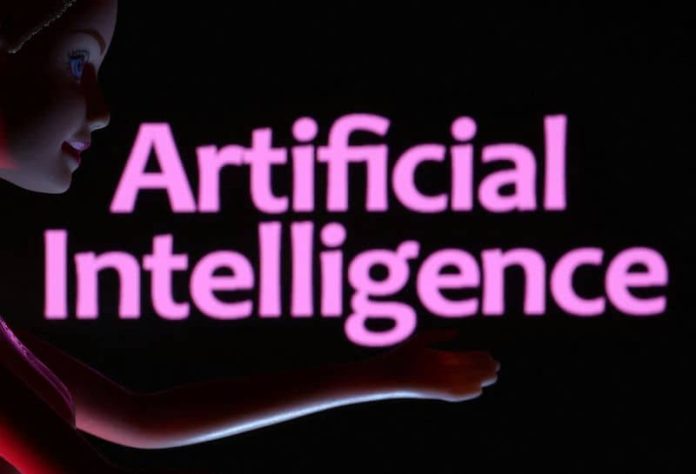By David Shepardson and Richard Cowan
WASHINGTON (Reuters) – U.S. Senate Majority Chuck Schumer on Wednesday will call for “comprehensive legislation” to advance and ensure safeguards on artificial intelligence (AI).
Governments around the world are considering how to mitigate the dangers of the emerging technology. Surging popularity of so-called generative AI, which uses data to create new content like ChatGPT’s human-sounding prose, could remake human society.
In April, Schumer circulated a framework outlining new regulatory regime to “prevent potentially catastrophic damage to our country while simultaneously making sure the U.S. advances and leads in this transformative technology.”
In remarks planned Wednesday at the Center for Strategic and International Studies in Washington, Schumer will reiterate the need for bipartisan congressional action.
“We have no choice but to acknowledge that AI’s changes are coming, and in many cases are already here… We must come up with a plan that encourages – not stifles – innovation in this new world of AI, and that means asking some important questions,” Schumer will say, according to excerpts released by his office. “We are going to work very hard to come up with comprehensive legislation. Because this is so important, we are going to do everything we can to succeed.”
Congress is narrowly divided and has not reached any consensus on AI legislation.
“AI is unlike anything that we’ve dealt with before, and it may be exceedingly difficult for legislation to tackle every single issue,” Schumer will say. “AI could be our most spectacular innovation yet, a force that could ignite a new era of technological advancement, scientific discovery, and industrial might.”
Schumer will ask “How much federal intervention, on the tax and spending side, must there be? Is federal intervention to encourage innovation necessary at all, or should we let the private sector develop on its own?”
President Joe Biden said Tuesday his administration “is committed to safeguarding Americans’ rights and safety while protecting privacy, to addressing bias and misinformation, to making sure AI systems are safe before they are released.”
In April, the CEOs of ChatGPT developer OpenAI, its backer Microsoft (NASDAQ:MSFT), and Alphabet (NASDAQ:GOOGL) met with Biden and other officials to discuss AI.
Congress should encourage not stifle innovation, Schumer will argue: “But if people don’t think innovation can be done safely, that will stifle AI’s development and even prevent us from moving forward.”




















